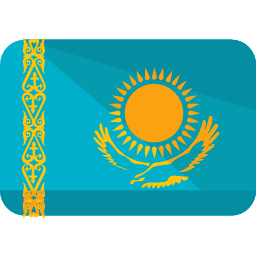Notary and Apostille Services for Legal Documents in the Netherlands
888-4004-234
Simbaking2022
Notary and Apostille Services for Legal Documents in the Netherlands
Notary and Apostille services play a crucial role in the legal and administrative landscape of the Netherlands. These services ensure the authenticity, validity, and legal recognition of various documents, making them essential for both individuals and businesses. So Notaryappostille is the best platform that provides Notary and Apostille services at a responsible price.
Notaryappostille Services in Netherlands
In the Netherlands, for Notaryappostille services provides various types of documents are involved. Here are some examples:
Power of Attorney (Volmacht): A Power of Attorney is a legal document that grants someone the authority to act on behalf of another person in specific matters. It may be used for various purposes, such as property transactions, business dealings, or healthcare decisions.
Deed of Sale (Koopakte): A Deed of Sale is a document used in real estate transactions to transfer ownership of property from a seller to a buyer. It contains details about the property, parties involved, purchase price, and other relevant terms and conditions.
Will (Testament): A Will is a legal document that outlines a person’s wishes regarding the distribution of their assets and the appointment of guardians for their children after their death. It is typically prepared with the assistance of a notary.
Incorporation Documents (Oprichtingsdocumenten): When establishing a company in the Netherlands, certain documents are required, including the Articles of Association (Statuten), Shareholders’ Agreement (Aandeelhoudersovereenkomst), and Notarial Deed of Incorporation (Notariële Akte van oprichting).
Marriage Settlement (Huwelijksvoorwaarden): A Marriage Settlement is a document that establishes the financial arrangements between spouses regarding their assets and liabilities. It outlines how property and finances will be managed during the marriage and in the event of divorce or death.
Parental Consent (Ouderlijke Toestemming): Parental Consent is a document often required when a minor child is traveling internationally without both parents. It provides consent from the absent parent or guardian for the child to travel and may need to be notarized.
Birth Certificate (Geboorteakte): A Birth Certificate is an official document issued by the municipality that records the birth of a child. It may be required for various purposes, including applying for passports or registering a child with educational institutions.
Legalization and Apostille: The Netherlands is a signatory to the Hague Apostille Convention. Therefore, documents issued in the Netherlands can be apostilled to verify their authenticity and legality for use in other countries. This process involves obtaining an Apostille stamp from the competent authority, usually the local district court.
Benefits of using Notaryappostille services
Legal Validity and Recognition
Notary services ensure that legal documents are properly executed, authenticated, and legally binding. By involving a notary, individuals, and businesses can have confidence in the validity and enforceability of their agreements, transactions, and other legal matters.
Protection of Rights and Interests
Notaries act as impartial professionals who safeguard the rights and interests of the parties involved in legal transactions. They ensure that all relevant legal requirements are met, helping to prevent fraud, misrepresentation, or disputes that may arise from inadequate documentation.
Expertise and Professional Guidance
Notaries in the Netherlands undergo extensive legal training and possess in-depth knowledge of Dutch laws and regulations. By seeking their services, individuals, and businesses can benefit from their expertise and receive professional guidance on complex legal matters.
Facilitation of Complex Transactions
Certain transactions, such as property transfers or company incorporations, require compliance with specific legal procedures and documentation. Notaries simplify these processes by preparing the necessary documents, ensuring compliance, and overseeing the transaction to its completion.
International Acceptance and Recognition
The Hague Apostille Convention, of which the Netherlands is a signatory, facilitates the recognition of Dutch documents in participating countries. By obtaining an Apostille, documents such as birth certificates, marriage certificates, and academic degrees gain international acceptance, simplifying processes related to immigration, education, employment, and legal matters abroad.
Efficient and Streamlined Processes
Notaries and Apostille services help streamline administrative procedures. By providing standardized formats, authentication mechanisms, and legal oversight, they reduce bureaucratic hurdles and save individuals and businesses time and effort when dealing with legal documentation and cross-border transactions.
Enhanced Legal Protection
The involvement of a notary and obtaining an Apostille adds an extra layer of legal protection. It provides assurance that the documents are properly executed, valid, and recognized, minimizing the risk of legal challenges, disputes, or rejection of documents in domestic and international contexts.
Compliance with Legal Requirements
Many legal transactions in the Netherlands, such as property transfers and company incorporations, require notarial involvement as mandated by Dutch law. By availing of notary services and obtaining Apostilles, when necessary, individuals and businesses ensure compliance with legal requirements, avoiding potential legal complications or voidance of transactions.
Process for verification of documents
When it comes to verifying the authenticity of legal documents, the process can vary depending on the type of document and the intended use. Certainly! The three main processes for document verification: Notary, Postal, and Legalization
Notary
Notarization is a process performed by a notary public, an authorized official who verifies the authenticity of documents and ensures their legal validity. The notary public confirms the identity of the signatories and witnesses by checking their identification documents, such as a driver's license or passport. Notarization is commonly required for various legal documents, such as affidavits, powers of attorney, contracts, and real estate transactions. The notary's signature and seal serve as evidence that the document is authentic and the parties involved have willingly entered into the agreement.
Postal
The postal verification process typically involves sending documents through postal mail for verification purposes. This method is commonly used when original documents need to be verified or certified copies are required. The individual or organization sending the documents will send them to the intended recipient via registered or certified mail. Upon receiving the documents, the recipient will review and verify their authenticity. This may involve comparing the documents with existing records or conducting additional checks. Once the verification process is complete, the recipient may provide a confirmation or certification of the documents' validity, which can then be used for the intended purpose.
Legalization
Legalization is a process that validates the authenticity of documents for international use. It is often required when documents issued in one country need to be recognized and accepted by another country.
Conclusion
Notary and Apostille services in the Netherlands are vital for ensuring the legality, authenticity, and recognition of various documents. Whether it's notarizing property transactions, drafting wills, or obtaining Apostilles for international use, these services provide individuals and businesses with the necessary legal assurance. By working with experienced notaries and following the proper procedures, individuals can navigate the complexities of the legal system and ensure the validity and acceptance of their documents both domestically and internationally.
FAQ's
A notary in the Netherlands is a legal professional responsible for authenticating and certifying various legal documents, ensuring their legality and validity. They play a crucial role in transactions such as property transfers, wills, and company incorporations, among others.
Notary involvement is required for certain transactions by Dutch law. Examples include property transfers, wills, marriage settlements, and the incorporation of companies. Notarial involvement ensures compliance with legal requirements and provides legal validity to the documents.
Involving a Notaryappostille provides several benefits, such as legal validity, protection of rights and interests, expertise and professional guidance, and facilitation of complex transactions. Notaries help ensure that legal documents are properly executed, authenticated, and legally binding, offering individuals and businesses peace of mind and legal assurance.




























